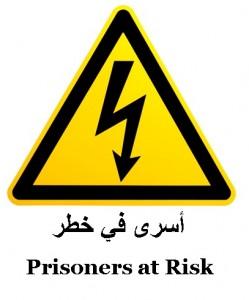
Ramallah, 17 January 2012 – As part of its Prisoners at Risk campaign, Addameer Prisoner Support and Human Rights Association demands the immediate release of Khader Adnan, a Palestinian prisoner on hunger strike currently held without charge or trial by Israel. The duration of his administrative detention has been set at 4 months, due to expire on 8 May 2012.
On 16 January 2012, Khader entered his 30th day of hunger strike and speaking strike in protest of his administrative detention. His health is rapidly deteriorating and he is refusing treatment until he is released. After being violently arrested on 17 December 2011, during which he suffered injuries to his face and back, Khader was immediately taken to Al-Jalameh interrogation center, where he began a hunger and speaking strike. On his fourth day of interrogation, the Israeli Prison Service (IPS) sentenced him in his cell to seven days of isolation in punishment for his ongoing hunger strike.
Throughout his ten days of interrogation, Khader was also subject to additional forms of ill-treatment, such as being forced to sit in a chair with a crooked back with his hands tied behind his back, causing extreme pain to his already-injured back. On 30 December 2011, Khader was transferred to Ramleh prison hospital because of his deteriorating health from his hunger strike. He was placed in isolation in the hospital, where he was subject to cold conditions and cockroaches throughout his cell. He has refused any medical examinations since 25 December.
Khader was issued a four-month administrative detention order on 8 January 2012. As the order is based on a secret file which is not accessible to Khader or his lawyer, it is impossible for Khader to know how to defend himself against any possible charges. This is not the first time Khader has been placed in administrative detention. He has spent a total of six years in Israeli prison, mainly in administrative detention. Although his interrogation period has ended, Khader remains under hunger strike for multiple stated reasons: he considers his detention a violation of his rights and identity; he rejects the ill-treatment he suffered at the hands of the soldiers, interrogators, and Nahshon Unit; and he refuses to accept the unjust system of administrative detention. Khader currently suffers from overall fatigue and dizziness and is refusing to add any vitamins or salt to his water. The doctor in the hospital has threatened to give him nutrition by force if he continues to resist medical treatment.
For more information about Khader’s case, you can read his profile here.
The Prisoners at Risk campaign aims to highlight cases which raise grave concern and require urgent action. Without international pressure, there is the real risk that Khader’s health will continue to deteriorate and that his administrative detention order will be renewed again in May. You can help stop this from happening by joining our campaign and doing one of the following:
- Write to the Israeli authorities to call for Khader‘s immediate and unconditional release;
- Write to your own government and representatives to call on them to pressure Israel to release Khader;
- Organize a vigil or a demonstration to call for Khader‘s release.
Please remember to inform us of any action you take in Khader‘s case by emailing [email protected].